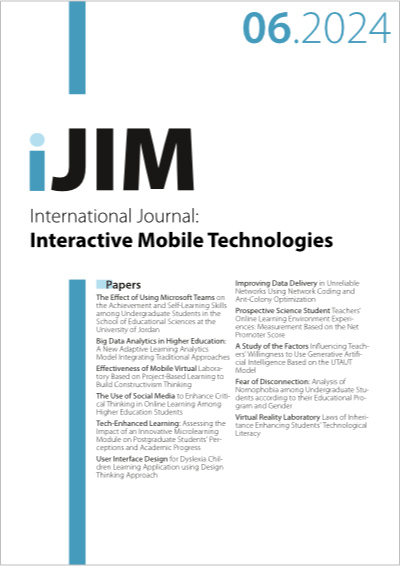Effectiveness of Mobile Virtual Laboratory Based on Project-Based Learning to Build Constructivism Thinking
DOI:
https://doi.org/10.3991/ijim.v18i06.47643Keywords:
mobile virtual laboratory, project-based learning, constrictivism, electrical measurementAbstract
Constructivism as a theoretical basis in education is key, considering that this approach views learning as an active process where students play a role in constructing their own knowledge. Apart from that, the development of mobile and virtual technology is increasingly growing in the educational environment. This research explores the effectiveness of this approach in building constructivist thinking in learning electrical installation practices. The method used in this research is the 4D Define, Design, Develop and Disseminate model. The research instruments include an expert review validity questionnaire and an evaluation instrument for students’ perceptions of the effectiveness of the Mobile Virtual Laboratory Based on Project-Based Learning in building constructivism. The research results show that the Mobile Virtual Laboratory is valid based on expert assessment, in addition there has been a significant increase in students’ understanding of concepts and practical skills, with a high level of satisfaction with the use of the Mobile Virtual Laboratory. So, it can be concluded that the Mobile Virtual Laboratory based on Project-Based Learning can be an effective tool to support constructivist learning in electrical measurement practice. The results of this research open opportunities for further research on how Artificial Intelligence can build constructive thinking.
Downloads
Published
How to Cite
Issue
Section
License
Copyright (c) 2024 Radinal Fadli, Herman Dwi Surjono, Ratna Candra Sari, Fivia Eliza, Muhammad Hakiki, Yayuk Hidayah, Mochammad Bruri Triyono, Agariadne Dwinggo Samala

This work is licensed under a Creative Commons Attribution 4.0 International License.



